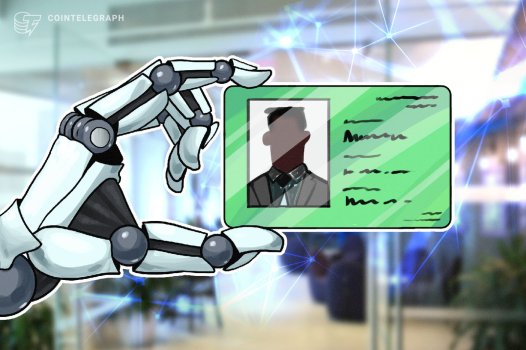There is no shortage of visionary scenarios about how Web3 might unfold, but one of the latest, “Decentralized Society: Finding Web3’s Soul” — a paper published in mid-May by E. Glen Weyl, Puja Ohlhaver and Vitalik Buterin — is close to becoming one of the top 50 most downloaded papers on the SSRN scholarly research platform.
The attention, one might suspect, has much to do with the participation of Buterin, blockchain’s wunderkind and the legendary co-founder of the Ethereum network. But it could also be a function of the paper’s ambition and scope, which includes asking questions like: What sort of society do we really want to live in? One that is finance-based or trust-based?
The authors illustrate how “non-transferable ‘soulbound’ tokens (SBTs) representing the commitments, credentials and affiliations of ‘Souls’ can encode the trust networks of the real economy to establish provenance and reputation.” These SBTs appear to be something like blockchain-based curricula vitae, or CVs, while “Souls” are basically people — or strictly speaking, individuals’ crypto wallets. However, Souls can also be institutions, like Columbia University or the Ethereum Foundation. The authors wrote:
Continue reading: https://cointelegraph.com/news/struggle-for-web3-s-soul-the-future-of-blockchain-based-identity
The attention, one might suspect, has much to do with the participation of Buterin, blockchain’s wunderkind and the legendary co-founder of the Ethereum network. But it could also be a function of the paper’s ambition and scope, which includes asking questions like: What sort of society do we really want to live in? One that is finance-based or trust-based?
The authors illustrate how “non-transferable ‘soulbound’ tokens (SBTs) representing the commitments, credentials and affiliations of ‘Souls’ can encode the trust networks of the real economy to establish provenance and reputation.” These SBTs appear to be something like blockchain-based curricula vitae, or CVs, while “Souls” are basically people — or strictly speaking, individuals’ crypto wallets. However, Souls can also be institutions, like Columbia University or the Ethereum Foundation. The authors wrote:
“In their simplest form, these SBTs can be ‘self-certified,’” continue the authors, “similar to how we share information about ourselves in our CVs.” But this is just scratching the surface of possibilities:“Imagine a world where most participants have Souls that store SBTs corresponding to a series of affiliations, memberships, and credentials. For example, a person might have a Soul that stores SBTs representing educational credentials, employment history, or hashes of their writings or works of art.”
Continue reading: https://cointelegraph.com/news/struggle-for-web3-s-soul-the-future-of-blockchain-based-identity

